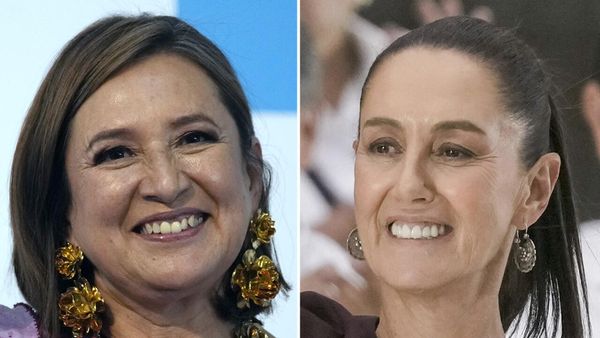
A government agency allegedly censored a major study that was critical of the big four consultancy firms because their partners sat on its board, according to the academic who wrote the report.
The allegation, which has been disputed by the agency, was made during a parliamentary inquiry into the ethics and professional standards of the consulting industry. It has led to questions about potential “regulatory capture” and possible undue influence.
The Australian Accounting Standards Board (AASB), which provides oversight of how companies are audited, commissioned Peter Carey and George Tanewski from Deakin University to study the quality of financial reports.
After more than a decade of research, Carey and Tanewski told the inquiry they believed some of the audits performed by the so-called big four – KPMG, Deloitte, EY and PwC – “did not uphold quality”. They also said some unnamed firms “did an excellent job”.
When asked to provide more detail about which firms had produced quality audits and which had not, Carey told the inquiry that he would rather not say, before alleging he had been asked not to by the AASB.
“We were told we probably shouldn’t put it in the report because each of the representatives of the big four sit on the accounting standards board and they do it voluntarily, which is a problem,” Carey told the inquiry this week.
In response, the Labor senator Deborah O’Neill, who leads the inquiry, asked: “We’re in the world of regulatory capture here, aren’t we?” Carey replied: “We are.”
Carey also agreed with O’Neill’s suggestion that the academics were “told not to put into your report the facts of the situation because those who would see it might be offended”.
The AASB chair, Keith Kendall, told Guardian Australia that “we do not believe that any instructions were given to leave names or businesses out of this report, or restrict what could be published”.
“All board members are appointed based on their skills and experience, depending on what advice is needed at the time. Importantly, each member is appointed based on their individual capacity and not as a representative of a firm or our stakeholder community.”
The contract pre-dated Kendall’s appointment to the chair position in 2020.
Carey suggested the AASB had the potential to be influenced by its board members – who provide specialist knowledge of auditing – because it lacked sufficient funding.
“They, cap in hand, ask people and the big four kindly provide support for free. In the absence of government funding, standard setting and proper regulation, you’re going to have this problem,” Carey told the inquiry.
Three senior executives from KPMG, PwC and EY were appointed to the AASB in January on three-year terms.
When they were announced, Kendall said the appointments would “provide expertise not only in the financial reporting standards space but also for sustainability reporting”. There is no suggestion of wrongdoing by Kendall or any of the executives.
Despite agreeing with O’Neill’s characterisation of “regulatory capture”, Carey praised the AASB for taking the issue of auditing standards seriously and said “they were so worried about the quality they wanted to make it public”.
This week, the federal treasurer, Jim Chalmers, announced the AASB and two other standards bodies would be merged into a single entity from 2026 to improve oversight of the sector.
“Businesses, investors and stakeholders will benefit from engaging with a single entity responsible for corporate reporting … that will deliver collaborative and effective standards and avoid unnecessary costs,” he said.
Graeme Samuel, the head of the Australian Competition and Consumer Commission between 2003 and 2011, also raised concerns about the quality of audit work during the inquiry.
“If you are performing both consulting and auditing work, you got a conflict of interest that cannot possibly be avoided,” Samuel told the inquiry. “It’s there. It’s a financial conflict that must impact, in my view, on the quality of audit.”
Samuel told the inquiry that he had seen instances of auditors becoming aware of “difficulties in the governance of a corporation” and turning a blind eye. Samuel did not name the auditors or the companies.
KPMG, EY, Deloitte and PwC have repeatedly defended the quality of their work.







